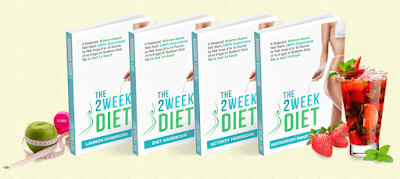Sadly, many dieters - including myself - miss out on one simple rule when we try out a new diet, and it way too often cost us our success. So here it is, as a reminder.
Don’t let your protein intake fall short.
Of all the foods you might eat while on a fat loss diet, protein is probably the most important. The right amount of protein will take you to the Promised Land, flowing with good health and energy. Protein combats hunger, stabilizes blood glucose levels, and prevents lean muscle loss. The result is a raised metabolism and accelerated fat loss.
Aim to consume some in every meal and snack. For some unexpected sources of protein, consider quinoa, avocado or bulgur in some form. And, you may ask here, what the heck is "bulgur"?
Bulgur wheat, yes it is a grain, is surprisingly nutritional and has a number of health benefits, including its ability to improve digestion, stimulate growth and development, stimulate circulation, aid with sleep, prevent chronic disease, and protect the immune system, among others.
Bulgur offers a higher concentration and wider variety of minerals, vitamins, antioxidants and fiber than refined wheats. Some of the key components of bulgur wheat include high levels of iron, magnesium, potassium, zinc, niacin, copper, phosphorous, manganese, fiber and dietary protein. There are also very few calories and fats, which can make this a very important food for people on a diet.
I know I got a bit off the track here, like we all so easily do, because I get so excited about the benefits of bulgur.
So again; Remember to get some protein!
Don’t let your protein intake fall short.
Of all the foods you might eat while on a fat loss diet, protein is probably the most important. The right amount of protein will take you to the Promised Land, flowing with good health and energy. Protein combats hunger, stabilizes blood glucose levels, and prevents lean muscle loss. The result is a raised metabolism and accelerated fat loss.
Aim to consume some in every meal and snack. For some unexpected sources of protein, consider quinoa, avocado or bulgur in some form. And, you may ask here, what the heck is "bulgur"?
Bulgur wheat, yes it is a grain, is surprisingly nutritional and has a number of health benefits, including its ability to improve digestion, stimulate growth and development, stimulate circulation, aid with sleep, prevent chronic disease, and protect the immune system, among others.
Bulgur offers a higher concentration and wider variety of minerals, vitamins, antioxidants and fiber than refined wheats. Some of the key components of bulgur wheat include high levels of iron, magnesium, potassium, zinc, niacin, copper, phosphorous, manganese, fiber and dietary protein. There are also very few calories and fats, which can make this a very important food for people on a diet.
I know I got a bit off the track here, like we all so easily do, because I get so excited about the benefits of bulgur.
So again; Remember to get some protein!


Comments
Post a Comment